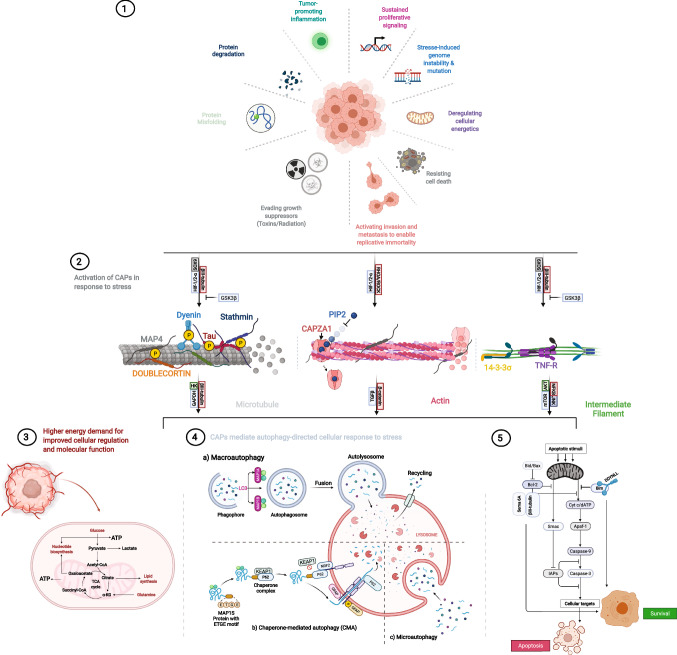Fig. 2.
CAPs orchestrate the modification of the cytoskeletal components in response to stress to regulate homeostasis and cancer progression. 1 Cancer cells respond to different types of stress, in the form of genetic, oxidative, mechanical, protein misfolding, and radiation, stemming from the environment or targeted therapy. 2 Cells respond to these stressors via cytoskeletal remodeling and upregulating CAPs with respective response signals that initiate a rapid post-translational modification of CAPs, and subsequent activation of several downstream signaling and interactions with specific metabolic intermediates, which trigger secondary functions for CAPs leading to relative metabolic processes. 3 Aberrant energy generation leads to more uncontrolled proliferation and an unstable microtubule results in abnormal cell division. 4 The aberrant energy generation in cancer cells prompts hyperactivity, and maintenance of each process requires homeostasis, another secondary function of specific CAPs; here, MAP1 binds to tubulin to promote autophagosome formation, while its homolog MAP1S is involved in chaperone-mediated autophagy. 5. Failure to effectively regulate the constant demand for energy or cellular response to therapy initiates apoptotic signals which are intercepted by other CAPs via interactions with anti-apoptotic genes leading to survival

